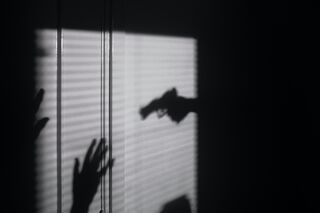Memory
Psychologists Can Help Eyewitnesses to Remember
Applying psychological knowledge has been shown to improve eyewitness memory.
Posted May 20, 2021 Reviewed by Lybi Ma
Key points
- Eyewitnesses cannot simply flip a switch to quickly and accurately remember the things that they have seen or heard.
- Memory is malleable, fragile, and error-prone; and even the most confident eyewitness can make significant errors.
- Eyewitness memory can be more complete and less error-prone with help from psychology.

Eyewitness memory does not work like a video recorder. Eyewitnesses cannot simply flip a switch to quickly and accurately remember the things that they have seen or heard. There are many reasons why this is the case. They may not have realised a crime was occurring until partway through, and they were not paying attention to what was happening. Even when eyewitnesses are aware that a crime is occurring, everything they see or hear is not automatically stored in memory. Crime event information that is attended to and is stored in memory can then sometimes be difficult to remember accurately at a later time. For example, during an interview with a police officer or when asked questions about the crime in court. Aspects of the crime itself, and the emotional state of the eyewitness at the time can also have an impact on memory.
Eyewitness memory has long been of interest to psychologists and so the literature is extensive and wide-ranging. But, the take-home message is clear and generally consistent. Eyewitness memory is malleable, fragile, and error-prone; and even the most confident eyewitness can make significant errors when describing what happened or who committed the crime. But, the literature also reveals that eyewitnesses can be relied upon to provide good quality information when criminal justice professionals treat them carefully.
It seems astonishing that someone who has witnessed a crime, such as a terrorist attack, a murder, or an assault might struggle to explain what the assailant looked like, who else was present, or what was said. Or, when asked to describe an attacker, make serious errors, such as being sure the person was a man, when in fact it was a woman. Equally, it seems implausible that an eyewitness might not be able to pick out a person who attacked them from a line-up or, worse, pick the wrong person.
These types of memory errors are extremely challenging for criminal justice professionals—police, prosecutors, jury members, prison and probation officers—because the information provided by eyewitnesses is important. In fact, eyewitness information is often described as the ‘life blood’ of Criminal Justice Systems, worldwide. How can we help eyewitnesses be as accurate as possible, remembering as much as they can about a crime?
Guidance from the extensive psychological literature is unequivocal. To reduce errors and improve the amount of event information recalled, eyewitness memory should be handled carefully, just like other trace evidence such as DNA and fingerprints. When this is happening, eyewitness memory is often more complete and less error-prone. Psychologists have been fundamental in researching and developing memory-enhancing techniques and questioning protocols to support eyewitness memory. These techniques have been well tested and in many cases form the basis of best practice in collecting eyewitness information during interviews, worldwide.
First, police and other legal professionals should collect eyewitness information at the very earliest opportunity. This helps strengthen and consolidate memory of the event and has been found to reduce the negative impact of post-event misinformation. That is, information about a crime that the eyewitness did not actually see or hear, but rather heard from others and which may be incorrect (for example from friends, co-eyewitnesses, social media, and other sources). When there is a delay in providing information to police, eyewitnesses should be encouraged to refrain from discussing what they saw with others and to make notes (written or verbal) as soon as possible and this could include illustrations if appropriate.
Second, eyewitnesses who are helped to mentally travel back in time to the crime event before being asked to explain what happened typically remember far more information and make fewer errors during a formal interview. This can be done by supporting eyewitnesses to mentally reinstate the physical and psychological context that existed at the time of the crime, or alternatively by asking eyewitnesses to draw elements of the event.
Third, crime information should initially be gathered using open-ended questions prefaced with ‘tell’ ‘explain’ or ‘describe’, followed by more detailed, probing questions. Probing questions should then be used to fully explore the information provided in response to the initial open-ended questions. Only then should questions be asked about topics not mentioned by the eyewitness, but which may be important to the investigation such as ‘did you see a gun?’ This is done to avoid interfering with the memory trace or leading eyewitnesses on.
Also, generally speaking, an interview is a social interaction. Comfortable eyewitnesses who understand the interview process, and do not feel pressured to provide responses to questions when unsure provide better quality information and make fewer errors. Interviewers should take time to build rapport with eyewitnesses, explain what to expect, and give them time to answer questions.
Finally, it is worth highlighting that it is not unusual for eyewitnesses to correct themselves (alter previous answers) as they move through an interview, particularly in response to probing questioning. Furthermore, where more than one interview takes place, it is not unusual for eyewitnesses to remember and report new information in later interviews. This should not be a source of concern when an interview is conducted correctly. This occurs because memory for one aspect of an event can trigger additional memories that had previously been inaccessible, and practice—repeated recall attempts across several interviews—can cue or trigger additional recall.
Treating eyewitness memory with the respect it deserves will go a long way towards reducing miscarriages of justice associated with poor memory performance, albeit these are relatively rare.
References
Dando, C. J. (2020). Eyewitness Forgetting. In D. Groome & Eysenck, M. W. Forgetting. Sage.
Dando, C. J. & Milne, R. (2018). The Cognitive Interview. In R. N. Kocsis, (Ed.). Applied criminal Criminal Psychology: A guide to forensic behavioural sciences. Springfield: Charles. C. Thomas.




